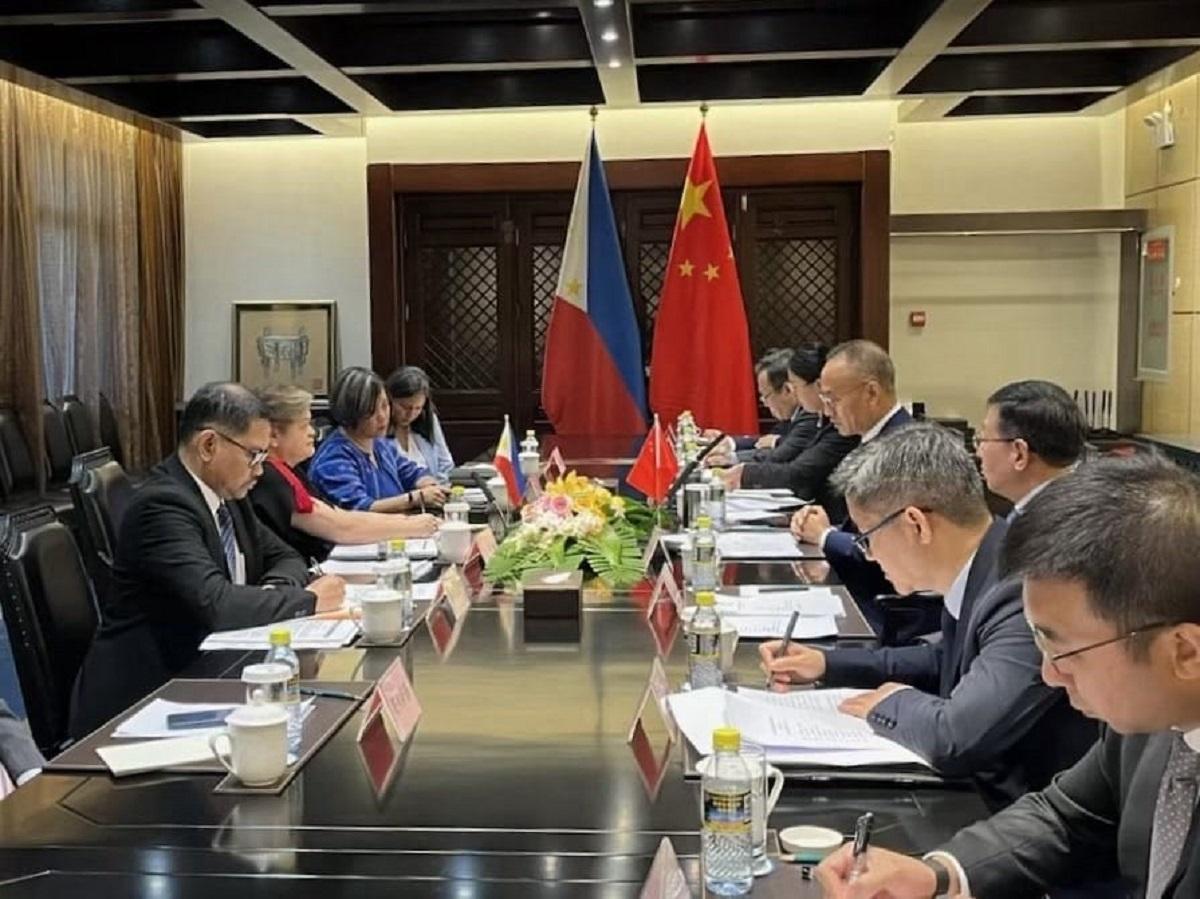No breakthrough on PH-China talks on Escoda Shoal

The Philippines and China maintained their respective positions on a disputed shoal in the South China Sea, but vowed to explore ways to prevent confrontations, the Department of Foreign Affairs (DFA) said Thursday.
Philippine Foreign Affairs Undersecretary Theresa Lazaro had a "frank and candid exchange of views" with counterpart Chinese Vice Foreign Minister Chen Xiaodong in a meeting in Beijing on Sept. 11, but did not reach a breakthrough on how to resolve an ongoing conflict in Sabina Shoal, called Escoda by Manila and Xianbin Reef by China.
"Emphasizing that Escoda Shoal is within the Exclusive Economic Zone (EEZ) of the Philippines, Undersecretary Lazaro reaffirmed the consistent position of the Philippines and explored ways to lower the tension in the area" the DFA said in a statement.
Both sides, however, "agreed to continue discussions on areas of cooperation, especially on hotline mechanisms, coast guard cooperation, and marine scientific and technological cooperation," the DFA said.
China' Ministry of Foreign Affairs, in a separate statement, said it "reiterated its principled position on the Xianbin Reef issue and urged the Philippines to immediately withdraw the relevant ships."
"China will firmly safeguard its sovereignty and the seriousness and effectiveness of the Declaration on the Conduct of Parties in the South China Sea" it said.
Senior Philippine and Chinese diplomats have agreed to resume talks in Beijing after a series of confrontations spread to a new scene of active conflict — the Escoda Shoal, an area located within the West Philippine Sea but is being claimed by China.
The talks, called Bilateral Consultations Mechanism (BCM), tackles thorny territorial issues related to the West Philippine Sea/South China Sea.
China and the Philippines alternately host the BCM talks, which started in 2017. Prior to Beijing, Manila hosted the BCM on July 2.
Sabina has emerged as a new site of confrontations between China and the Philippines in the disputed waters.
The Philippine Coast Guard deployed the BRP Teresa Magbanua to Sabina on April 15 after Philippine authorities found crushed corals and other piled debris in the shallows of the uninhabited shoal that they said could be a sign of a Chinese plan to start a construction of a structure.
China reacted by deploying coast guard and other vessels to Sabina, including it’s biggest coast guard vessel dubbed a “monster ship” for its size. The “monster ship” has left but several other Chinese ships are now closely guarding Teresa agbanua, which sustained damage after being rammed by Chinese ships recently.
The Philippines strongly protested China's actions and the United States, Japan, Australia, and other like-minded states deplored the dangerous moves by the Chinese.
As of August 27, the Philippines under President Ferdinand "Bongbong" Marcos Jr. has filed 176 diplomatic protests against China.
Both Lazaro and Chen in Beijing have agreed to continue to maintain communication through diplomatic channels such as the BCM, according to the statements issued by the two sides.
China's increasingly aggressive actions in the South China Sea prompted serious concerns and condemnations from several countries after China’s coast guard vessels have repeatedly blasted water cannons, used military-grade lasers, and blocked Philippine government ships from conducting resupply missions from a shoal, called Ayungin by Manila, that Beijing claims as its own.
Several confrontations between Chinese and Filipino vessels since last year resulted in several injuries on the Philippine side, including one Filipino soldier who lost a thumb in a June 17 incident at the shoal where several knife and axe-wielding Chinese coast guard personnel blocked, harassed, and attacked Filipino navy while bringing food and other supplies for a small Philippine contingent stationed in Ayungin.
China has also been harassing Philippine vessels and fishermen and installed barriers at the Scarborough Shoal or Bajo de Masinloc, which lies within Manila’s exclusive economic zone under a United Nations maritime convention.
Manila and Beijing in July forged a “provisional arrangement” to deescalate tensions and prevent clashes in the Philippine-occupied Ayungin Shoal.
Following the arrangement, no confrontation was reported when the Philippines delivered food supplies and other necessities and transported a new batch of navy personnel to Ayungin, where a rusting World War II-era vessel, deliberately grounded by Manila in 1998, serves as a military outpost.
Noting the significance of the BCM, the DFA said the crucial meeting Manila last July led to the conclusion of the deal in Ayingin shoal.
A vital trading and shipping lane, the South China Sea, dotted with rocks, shoals and reefs where rich oil and mineral deposits were found, are claimed in part or in whole by the Philippines, China, Vietnam, Malaysia, Brunei, and Taiwan.
China’s vast territorial claims in the waters have sparked tensions and violent confrontations with smaller claimants, like the Philippines and Vietnam.
In July 2016, a The Hague-based tribunal ruled in favor of the Philippines and declared China's massive and historic claim on the South China Sea illegal and baseless under international law. China does not recognize the ruling.
Washington has repeatedly declared its “ironclad commitment” to help defend its treaty ally, the Philippines, in case of an armed attack against its forces amid repeated Chinese harassment of Filipino vessels and personnel.
Manila calls parts of the South China Sea that falls within its territory as West Philippine Sea. —KBK, GMA Integrated News




